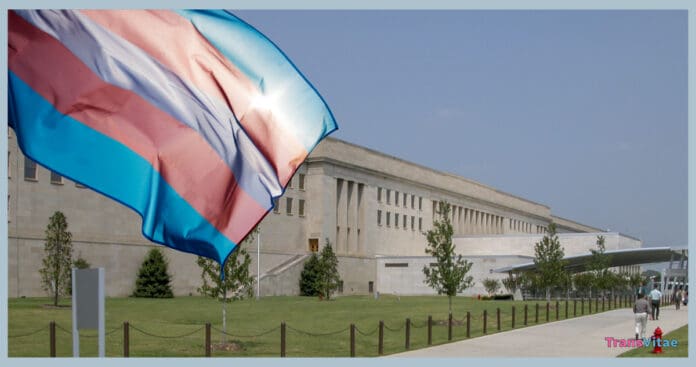A federal courtroom in Washington, D.C., crackled with tension as U.S. District Judge Ana Reyes on Tuesday lambasted the Trump administration’s latest executive order banning transgender troops from serving in the U.S. military. Judge Reyes, who was appointed by President Joe Biden, repeatedly questioned the government’s motives and reasoning, describing part of the directive as “frankly ridiculous” and hinting she would not uphold a policy based on what she saw as pure animus toward transgender individuals.
Order Sparks Legal Showdown
Signed by President Donald Trump on January 27, the executive order, titled “Prioritizing Military Excellence and Readiness,” claims that accommodating the “gender ideology” of transgender service members undermines unit cohesion and erodes military discipline. It directs Defense Secretary Pete Hegseth to craft a revised policy aligned with the order, effectively halting new enlistments by trans individuals and pausing medical procedures related to transitioning.
Six active-duty transgender service members and two aspiring recruits responded by filing a lawsuit to block the measure, alleging it violates their Fifth Amendment right to equal protection. Their attorneys from the National Center for Lesbian Rights (NCLR) and GLAD Law argue the order openly expresses “hostility and animus” toward the transgender community, branding thousands of patriotic service members as “dishonest” and “undisciplined.”
Judge Reyes’ Fiery Rebuke
During Tuesday’s hearing, Judge Reyes pressed Department of Justice attorney Jason Lynch to explain how language that calls an entire group of service members “liars” and “inconsistent with an honorable lifestyle” could be seen as anything other than animus. Lynch appeared flummoxed when Reyes asked for a clear response, prompting her to retort, “No, you have an answer. You just don’t want to give it.”
Reyes also zeroed in on the order’s claim that the use of pronouns “inaccurately reflecting an individual’s sex” undermines readiness and cohesion. “It is frankly ridiculous to suggest pronoun usage could possibly impact the preparedness of the U.S. armed forces,” she said. “Any common-sense person would understand that it doesn’t.”
The government contends the measure is a “pause,” giving Hegseth time to reevaluate policy, but Reyes was unconvinced. Noting the language and the president’s own public statements, she argued the administration is effectively banning transgender individuals. “If we asked President Trump himself if it’s a ban,” she challenged Lynch, “he’d say, ‘Of course it is!’”
Impact on Service Members
The policy has upended the lives of many, including an active-duty service member who was reportedly “on the operating table” for a medically necessary procedure when the hospital canceled the surgery, citing the new guidance. Another soldier drove through the night for a procedure, only to be told to return to base or be considered AWOL.
Such stories galvanized Judge Reyes, who demanded to know why the administration singled out transgender troops. Government attorneys suggested that transgender people are simply not “similarly situated” to cisgender soldiers, a claim that attorneys for the plaintiffs call a “red herring.”
Army Reserve 2nd Lt. Nicolas Talbott, a 31-year-old transgender man from Ohio, exemplifies the determination and strength that trans troops bring to the military. “I was treated the same as everyone else,” Talbott told reporters. “No disruptions were caused simply by my presence. This is what I’ve always wanted—to serve this country. Knowing we’re going to lose so many thousands of talented people makes our nation less safe.”
Opponents of transgender service often raise concerns about medical costs and deployability. However, Shannon Minter, legal director of the NCLR, counters that many common medical procedures for non-trans troops involve longer recovery times than the surgeries some transgender individuals may undergo. Hormone therapy, Minter notes, typically has “no effect at all” on a soldier’s ability to deploy.
Judge’s Compassionate Approach
Reyes’ emphatic line of questioning—“If you were in a foxhole with someone who has commendations for bravery, would you really care about their pronouns?”—was aimed squarely at the heart of the government’s argument. Lynch conceded he likely would not. The judge’s remarks underscore that the readiness of any soldier depends far more on training, commitment, and unity than on a soldier’s gender identity.
The lawsuit could affect between 9,000 and 14,000 transgender service members. “We have a straightforward argument,” Minter told reporters. “It violates the equal protection clause to single out a group of people who meet the same standards as everyone else.”
The Bottom Line
While Judge Reyes indicated she will not issue a ruling before early March, she signaled deep skepticism about the administration’s claims. With additional hearings set to continue, the future of the order remains uncertain. For many transgender Americans, the stakes are intensely personal—an entire career of service and sacrifice could be swept away by a policy that, in Reyes’ words, reduces trans individuals to a perceived “ideology” instead of treating them as equal, capable patriots.
As thousands of transgender troops and hopeful enlistees wait on pins and needles, the court battle highlights the broader question of whether personal identity should disqualify otherwise qualified, disciplined individuals from serving their country. For now, Judge Reyes’ candid criticism offers a measure of hope, signaling that this debate isn’t just about policy—it’s about the humanity and integrity of those willing to risk their lives to defend the nation they love.


